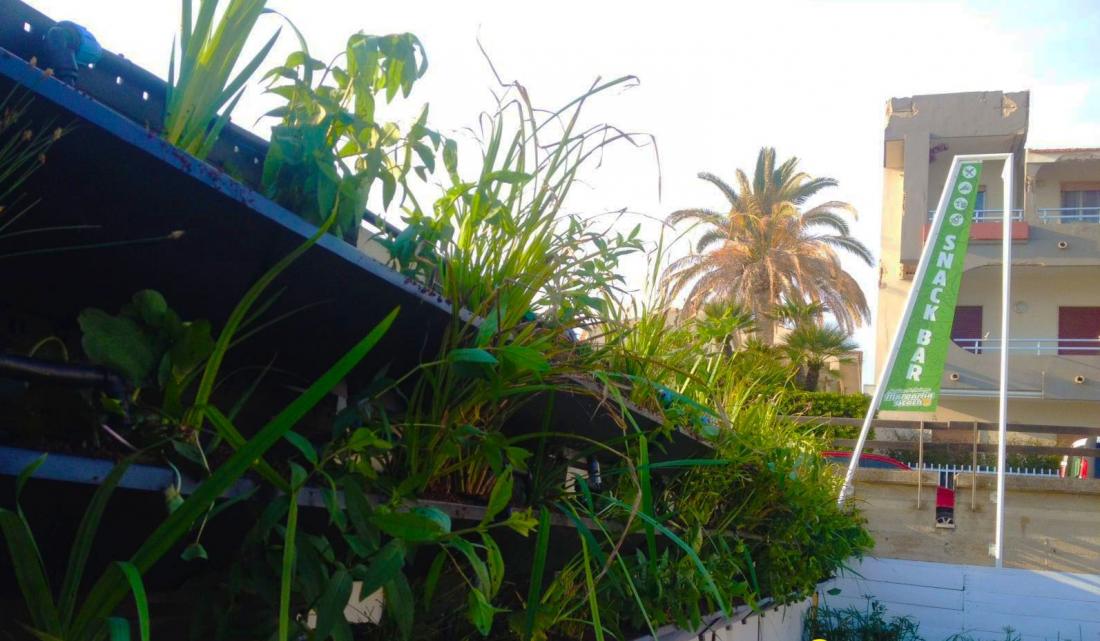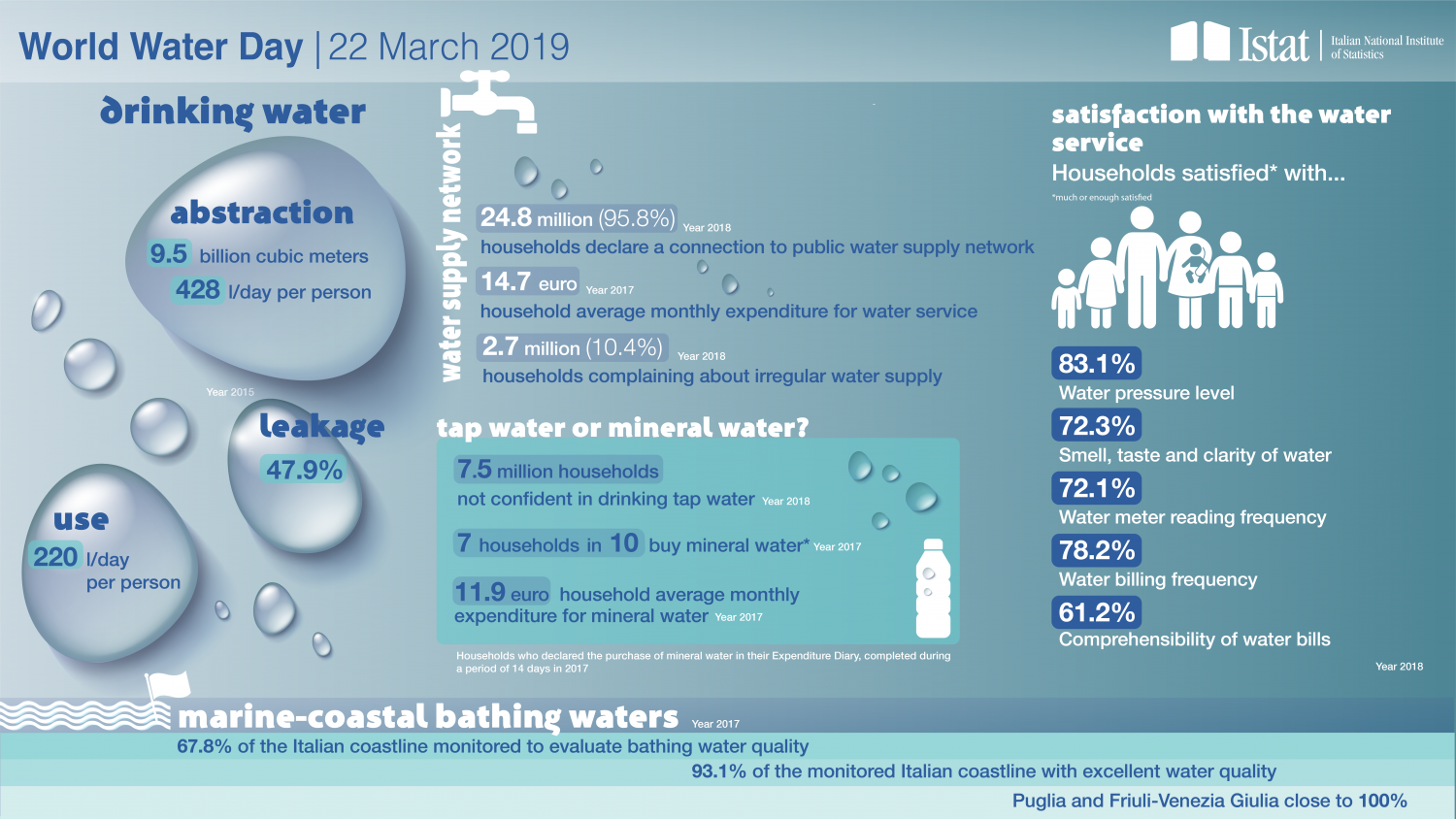NAWAMED: why the use of non-conventional water resources is “a must” in Italy?

According to the Italian Statistical Institute (ISTAT), Italy ranks first in the EU for water abstraction for urban water supply. In 2015, the total volume of water abstracted for public water supply on the Italian territory amounted to 9.5 billion cubic meters, around 25% of the total water abstraction for different uses, estimated at 40 billion. Per capita abstraction amounts to 428 litres per person per day. It is the highest value in the European Union. However, almost half the water abstracted from sources (47.9 %) did not reach end-users, due to leakages in the supply system.

Source: ISTAT 2019
As a result, daily supply of potable water provided by the water services to end-users amounts to 220 litres per person: a quite high consumption compared to other EU Med countries, such as Spain where urban consumptions are lower than 150 litres/day/person (www.waterstatistics.org).
In Italy, only 4.2% of households declared to use water from supplies different from the public ones. According to the IPCC forecasts, climate change in the Mediterranean region will increase the frequency of dry periods: that is why in Italy solutions to reduce water abstraction are among the most important adaptation measures. Among such measures, besides drastic measures to minimize leakages, the use of non-conventional water resources – such as rainwater and greywater reuse – has to be promoted.
Barbara Sarnari, from Svi.Med. onlus, partner of the NAWAMED project concludes that:
According to the brief analysis of the Italian situation developed by the technical partner, Iridra srl, NAWAMED project will contribute at national level fostering a cooperative dialogue between the main stakeholders about the water management. In Italy we are often missing the perception of the gravity of water management problem. However the opportunity to test natural-based solution for treating and reusing non-conventional water resources at domestic level, for example in a school as we are doing in Sicily, it’s the first step toward change.









